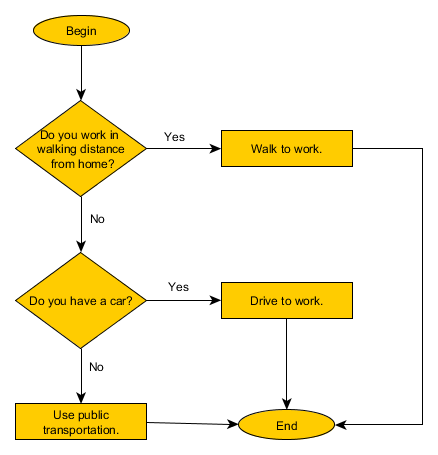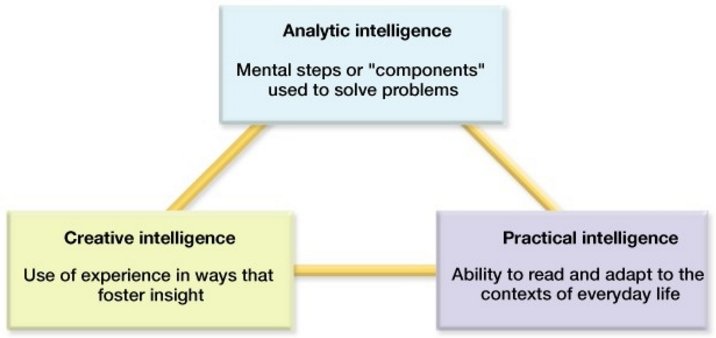【5】Cognitive Psychology
Intro to Memory
cognition = thinking/mentally processing concepts, language, concepts etc.; acquiring, organizing, remembering, and building knowledge about the world
automatic processing = unconscious processing of well-learned processing
effortful processing = actively engaging in processing info with sustained effort
shallow processing = has to do with info based on its surface characteristics
deep processing = processing info with respect to its meaning
metacognition = thinking about thinking; ability to evaluate a cognitive task to determine how to best accomplish it; being aware of your own thoughts
memory = persisted learning over a long period of time; info that can be stored or retrieved
Modal Model = splits memory into 3 categories
 |
| Modal Model created by Richard Atkinson and Richard Shiffrin |
Each type of memory has 4 components:
- storage capacity
- duration of code
- nature of code
- way by which info is lost
Sensory memory = gateway between perception and memory; limited perceiving -> remember feeling
- iconic - visual info being stored; lasts for tenths of a second
- iconic info can't be easily manipulated
- echoic - auditory info being stored; lasts for 3 to 4 seconds
- info in sensory memory is constantly being replaced; very few things make it to short term memory
- visual persistence = sensory info remains briefly in your attention (ex. watch blades on a fan spin)
- George Sperling - psychologist who experimented with memory and created the partial report task to study the capacity of short-term memory.
- Partial report
- people were given a matrix with 3 rows and 3 columns with 4 letters each
- participants had 20 milliseconds to memorize
- They were asked afterwards to recite the entire matrix/recall 1 of the rows
- participants were unable to recall the entire matrix
- however, they were able to recall a row when asked
- this means they had a mental image of the matrix stored (short-term memory)
- retention time is short
- the further apart the rows were, the worse the participants did
Short-term memory = holds around 7(+-2) items for a few seconds to a minute; info is primarily acoustic encoded despite the original source
- rehearsal = keeps items in short-term memory
- maintenance rehearsal = simple repetition to keep an item in short-term memory until it's used
- elaborative rehearsal = organizing and understanding the info that is being encoded in order to transfer it to long-term storage
- How we forget
- decay = forgetting over time
- interference
- retroactive interference = new info pushes out old info
- proactive interference = old info makes new info hard to learn
- Items in short-term memory are stored in the form of a list
- serial position effect = we tend to remember things that are first and last on the list
- primary effect - remembering first items
- recency effect - remembering last items
Long-term memory = storage for all our long lasting knowledge and memory; info is usually connected; can last for the rest of our lives
- semantically encoding = in the form of word meanings
- visual encoding = remembering what things look like
- acoustic encoding = remembering how things sound
- Ways info's stored in long-term memory
- episodic memory = events we experience first hand
- semantic/explicit/declarative memory = conscious; about facts, figures, and general knowledge; memories that a person can consider and retrieve
- implicit/nondeclarative memory = unconscious; is beyond conscious consideration
- procedural memory = consists of skills and habits
Working memory = we can use and manipulate the info that we experience better than we can in sensory; lasts for ~30 seconds; allows you to think on the spot
- its position on the Modal Model is undecided
Encoding = process where info is stored and can be recalled
- effortful (explicit) or automatic (implicit) processing of memories
- sensations (iconic, echoic)
- based on capacity of memory system (sensory, STM, LTM)
- Parallel processing = info around us gets split into different components for simultaneous processing
- Ex. sights, smells, tastes, emotions, temperature, sounds from our memories
- Effortful Processing Strategies
- Chunking = organizing info into manageable units (ex. letters, words, phrases)
- Mnemonic devices = techniques that make it easier to learn/remember something
- Ex. acronyms, fake but pronounceable words, associating with pictures (imagery)
- Dual coding hypothesis = words are easier to remember if they're associated with images rather than words or images alone
- Method of Loci = imagining moving through a familiar place, and in each part put down a visual representation of a topic to be remembered
- Hierarchies = dividing concepts into subdivisions
- Ex. animal -> birds -> flamingos
Distributed Practice = info retention is best when encoding is done over time
- Spacing effect = the tendency for distributed study/practice to yield better long term retention than is achieved through cramming
- Testing effect = enhancing memory after retrieving rather than just rereading info
- quizzing yourself and making up questions from your notes rather than just highlighting
- self-reference effect = when info has a personal connection to us we remember it better; deep and meaningful processing = easier to remember
Storage = ability to retain info; memories are stored in brain like a network
- the hippocampus and the frontal lobe is where explicit memories are stored
- left side - stores verbal info
- right side - stores visual info
- Memory Consolidation = memories move from hippocampus to other parts of the brain for long-term memory storage
- study/sleep/restudy research shows that sleep improves your ability to retain info (spacing effect)
- Implicit memory systems
- cerebellum = stores implicit memory by classical conditioning
- basal ganglia = stores procedural memory such as motor movements
- amygdala = triggers during stress, memory formation, and storage
- we often remember memories that have vivid emotions
- flashbulb memory = clear sustained memory of an emotionally significant moment/event
Retrieval = recalling info from memory
- since memory is stored in a network, using retrieval cues can help trigger a memory
- priming = unconsciously activating particular associations in memory; effects our behavior
- Ex. seeing missing posters -> being wary of white vans
- Context dependent memory = putting yourself back in the situation you were in can help you remember things; retracing your steps
- Encoding specificity principle = cues and context specific to a particular memory will be most effective in helping us remember it
- State-dependent memory = memories are better retrieved when the person is in a similar state to when they first encoded the memory
- mood-congruent memory = tendency to recall experiences that are consistent with one's current mood
Forgetting & memory distribution
- Anterograde amnesia = inability to form new memories
- Retrograde amnesia = can't retrieve info from one's past
Encoding failure = being bombarded by senses -> what doesn't get noticed doesn't get encoded -> remembered
- as we age, our ability to encode declines
Forgetting curve = made by Ebbinghaus, the rate of forgetting is initially rapid, then levels off with time
Retrieval failure = failing to remember what we know
- tip-of-the-tongue effect = when we're unable to retrieve a certain word, but can recall words that are similar
Repression = defense mechanism that banishes anxiety-ridden thoughts, feelings, and memories from the consciousness
- people often repress painful or unacceptable memories
Reconsolidation = a process in which previously stored memories, when retrieved, are potentially altered before being stored again
Misinformation effect = wrong info distorts one's memory of an event
⭐Elizabeth Loftus
Source amnesia = faulty memory for how, when, or where info was learned; happens with unintentional plagiarism
Deja vu = when a cue from current situation may unconsciously trigger retrieval of an earlier similar experience
Thinking and Problem Solving
concept = mental grouping of similar things, events, ideas, or people; formed from prototypes
prototype =mental image/best example of a category
- matching new items with a prototype is a quick method for sorting
creativity = ability to produce new/valuable ideas
divergent thinking = expanding number of possible solutions; in different directions
convergent thinking = narrowing the available problem solutions to determine the single best solution
⭐According to Robert Sternberg, creativity has 5 components
- Expertise
- Imaginative thinking skills
- Venturesome personality
- Intrinsic motivation
- Creative environment
Problem Solving Techniques and Obstacles
- algorithms = methodical, logical procedure that guarantees solving a problem; depicted as a branching road map

- heuristics = simple thinking strategy that allows us to make quick judgements and solve problems efficiently
- insight = suddenly realizing the solution to a problem
Biases and errors in thinking
Confirmation bias = a tendency to search for info that supports our preconceptions and ignore/distort contradictory evidence
Fixation = inability to see a problem in a new perspective
Mental set = tendency to approach a problem in one way that used to work in the past
intuition = immediate and automatic feeling or thought with out extensive reasoning; "gut feeling"
Availability heuristic = estimating the likelihood of events based on their availability in memory; common things you do/experience might not be common for everyone else
Representative heuristic = estimating the likelihood of events in terms of how well they seem to match our prototypes; often ignores relevant info; ex. racism
Overconfidence = overestimating accuracy of our beliefs/judgements; the tendency to be more confident than correct
Belief perseverance = clinging on to long-held beliefs despite being presented contradictory evidence
Framing = how an issue is worded/presented affects our decisions and judgements
Intelligence = ability to learn from experience, solve problems, and use knowledge to adapt to new situation
Theories
- general intelligence (g)= if you're intelligent in one area, there's a high chance that you're above average in other areas as well; proposed by ⭐Charles Spearman
- factor analysis = statistical procedure that identifies clusters of related factors on a test. ex. Myer Briggs Personality test
- ⭐Howard Gardner's Multiple Intelligences = 8 or 9 different types of intelligences
- there's a correlation between g-factors and potential for success (talent + grit)
- ⭐K. Anders Ericson = professionals need ~11k hours and a minimum of ~3k hours to master something (10 year rule)
social intelligence = ability to understand and navigate social situations while managing ourselves successfully
emotional intelligence = ability to perceive, understand, manage, and use emotions
Psychometric Principles and Intelligence Tests
- intelligence test = assessing someone's mental aptitudes and comparing them with others using numerical scores
- achievement test = assesses what someone has learned
- aptitude test = predicts your ability to learn/predict a person's future performance
⭐Francis Galton = studied human "natural ability" and wondered what would happen if of 2 people with high ability were to birth a child
- did a study on this concept and didn't find a correlation
- nature v nurture
⭐Alfred Binet = was tasked by the French government to create tests for students who haven't been in a school system prior to avoid being sorted by bias





Comments
Post a Comment